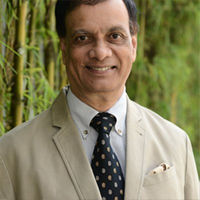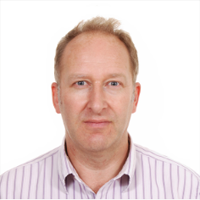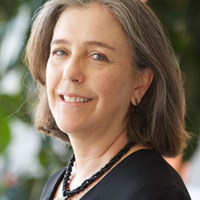The opening plenary provides an overview of the themes and challenges that will be grappled with during the Fourth Conference on Evaluating Environment and Development, organized by the GEF Independent Evaluation Office. This year’s theme is the integration of various environmental domains, including between environmental and socioeconomic and policy domains, and what this means for…
Moderator(s)

Juha Uitto is the former Director of the Independent Evaluation Office (IEO) of the Global Environment Facility (2014-2024). He has worked as an evaluator with the GEF and the United Nations Development Programme (UNDP) since 1999, including as Deputy Director of the UNDP IEO from 2009 to 2014. He has conducted and managed many programmatic and thematic evaluations of international cooperation at the global, regional and country levels, in particular related to environmental management and poverty-environment linkages. He served as the Executive Coordinator of the United Nations Evaluation Group (UNEG) from 2009 to 2012 and again in 2014.
Juha's entire career has focused on environment and development, with earlier positions at the United Nations University (UNU), Nordic Africa Institute, and International Fund for Agricultural Development (IFAD). He has worked as consultant in the field and held visiting positions at Rutgers University and Kyoto University. He was educated at the Universities of Helsinki and Lund, and holds a PhD in Social and Economic Geography.
Keynote Speaker(s)

Vinod Thomas is Visiting Senior Fellow at Institute of Southeast Asian Studies, and previously Visiting Professor at National University of Singapore. He is a Distinguished Fellow at the Asian Institute of Management, Manila. Thomas was Senior Vice-President of the Independent Evaluation Group at the World Bank Group (2006-2011), and Director General of Independent Evaluation at the Asian Development Bank (2011-2016). At the World Bank, he was Chief Economist for Asia, Country Director for Brazil, and Vice President of the World Bank Institute. He has been on the Boards or Advisory Panels relating of the GEF, NDB Shanghai, CSEP India, International Evaluation Academy, among others. He has a PhD in Economics from the University of Chicago and a BA from St. Stephen's college, Delhi. He has authored 17 books including The Quality of Growth, 2000, Economic Evaluation of Sustainable Development (with Namrata Chindarkar), 2019, and Risk and Resilience in the Era of Climate Change (2023).
Presenter(s)

Mike Spilsbury is the Director of the Evaluation Office of the UN Environment Programme and has more than 25 years professional evaluation experience in international organizations. He joined UN Environment in 2005 as a GEF Evaluation Officer and has performed various roles in the Evaluation Office, serving as its head since 2013. He is active in the United Nations Evaluation Group as is Chair of its Peer Review Working Group. He has completed reviews of the evaluation functions of UNICEF and UNODC and the Independent Evaluation Office of the GEF.Prior to joining UN Environment, he worked as an international research scientist for the Center for International Forestry Research based in Bogor, Indonesia (1995-2005). He joined CIFOR shortly after its creation was responsible for impact assessment, evaluation of research and strategic planning. He has an academic background in forest management and forest ecology. He holds both Masters and Doctoral degrees from Oxford University and Bachelor of Science from York University, UK. He has authored more than 40 publications.

Paula Caballero is The Nature Conservancy's (TNC) Regional Managing Director for Latin America. She leads a team of more than 400 staff across 9 countries from Mexico to Argentina, to deliver bold, new strategies and partnerships to conserve the world’s most biodiverse region. Paula has extensive experience in sustainable development. She is recognized as having created the United Nations Sustainable Development Goals concept, which is considered to be a “blueprint to achieve a better and more sustainable future for all.” For this work, she received the German Sustainability Award in 2019. In 2014, she received the Zayed International Prize for the Environment for her contribution to “environmental action leading to positive change”.




